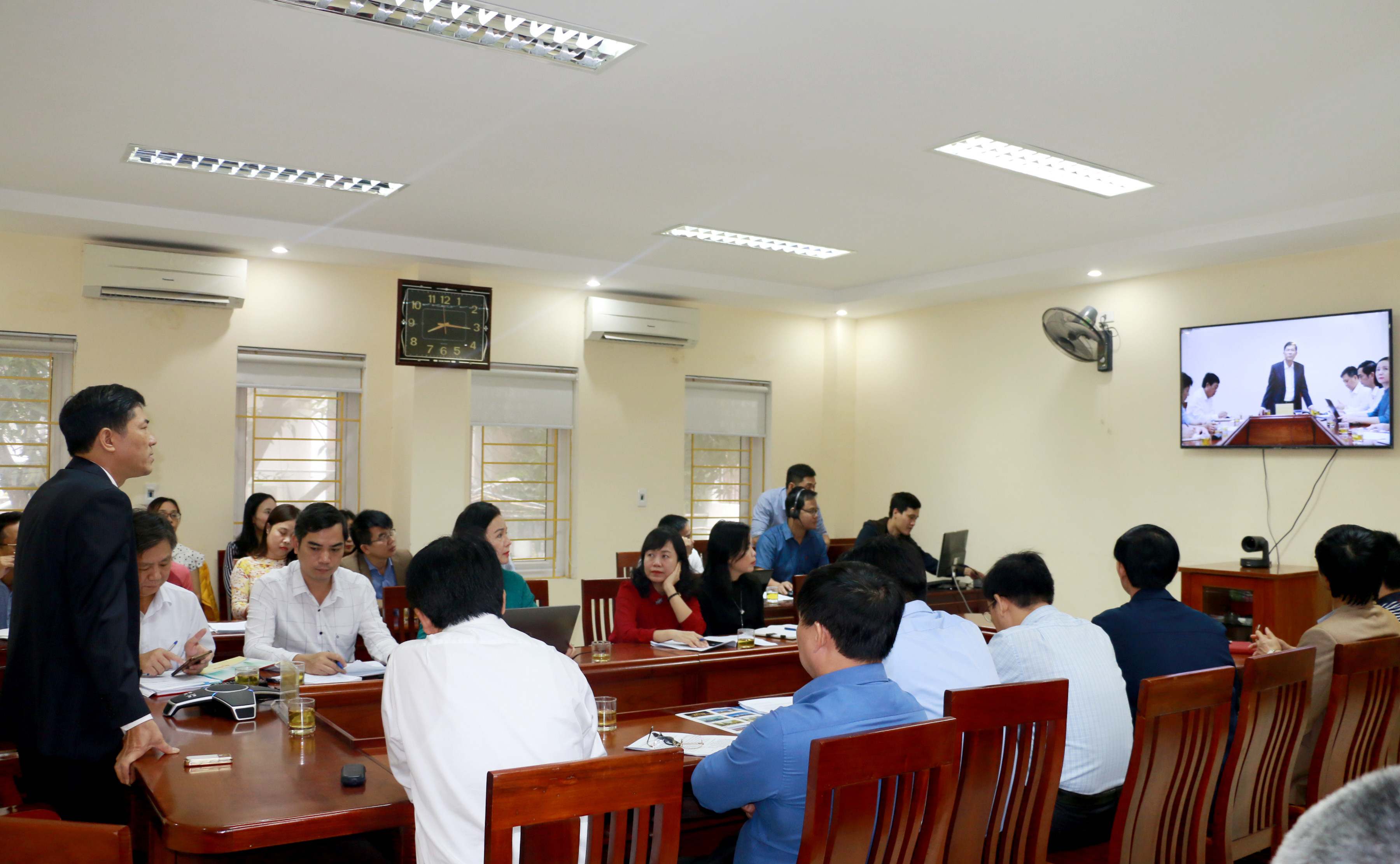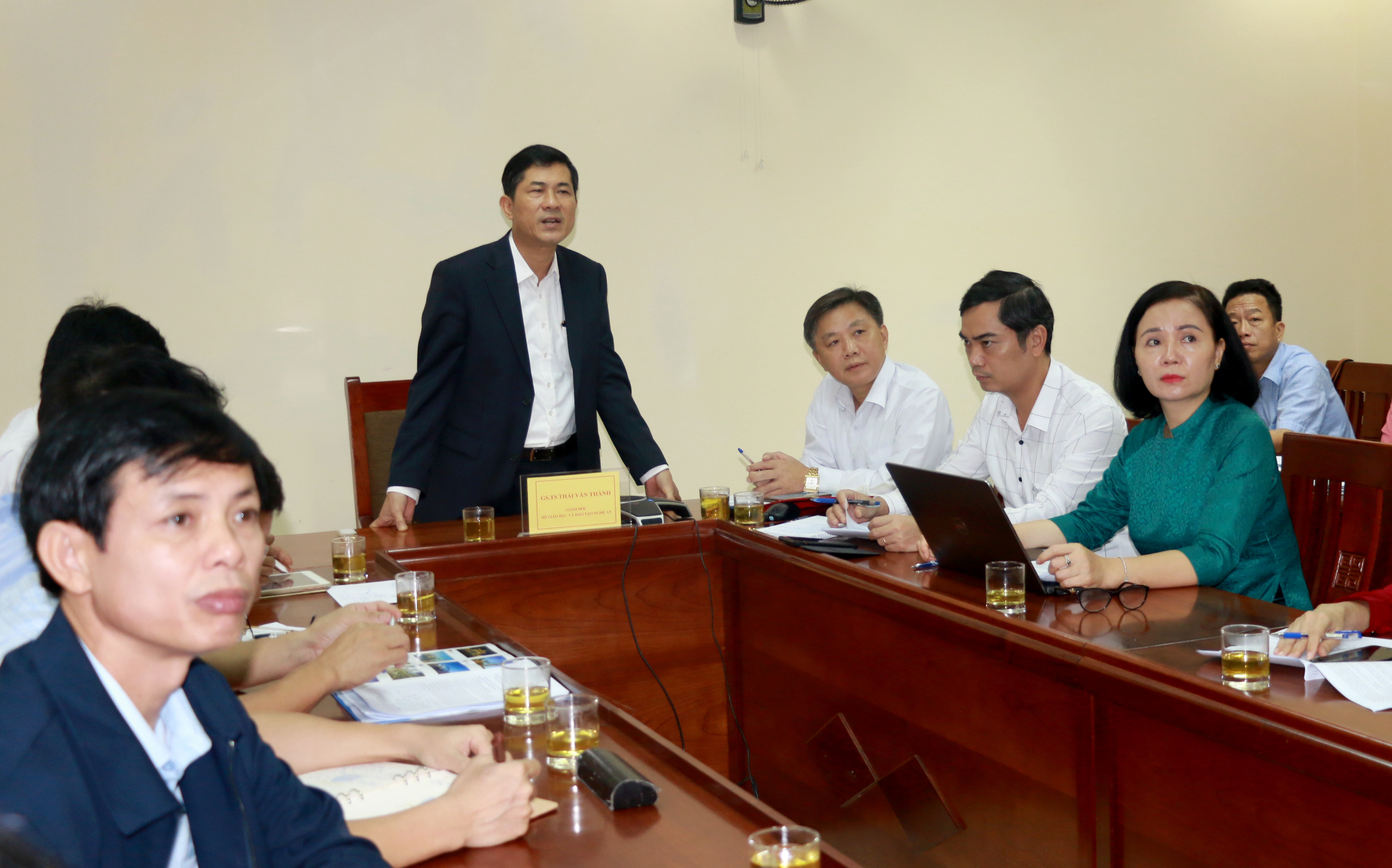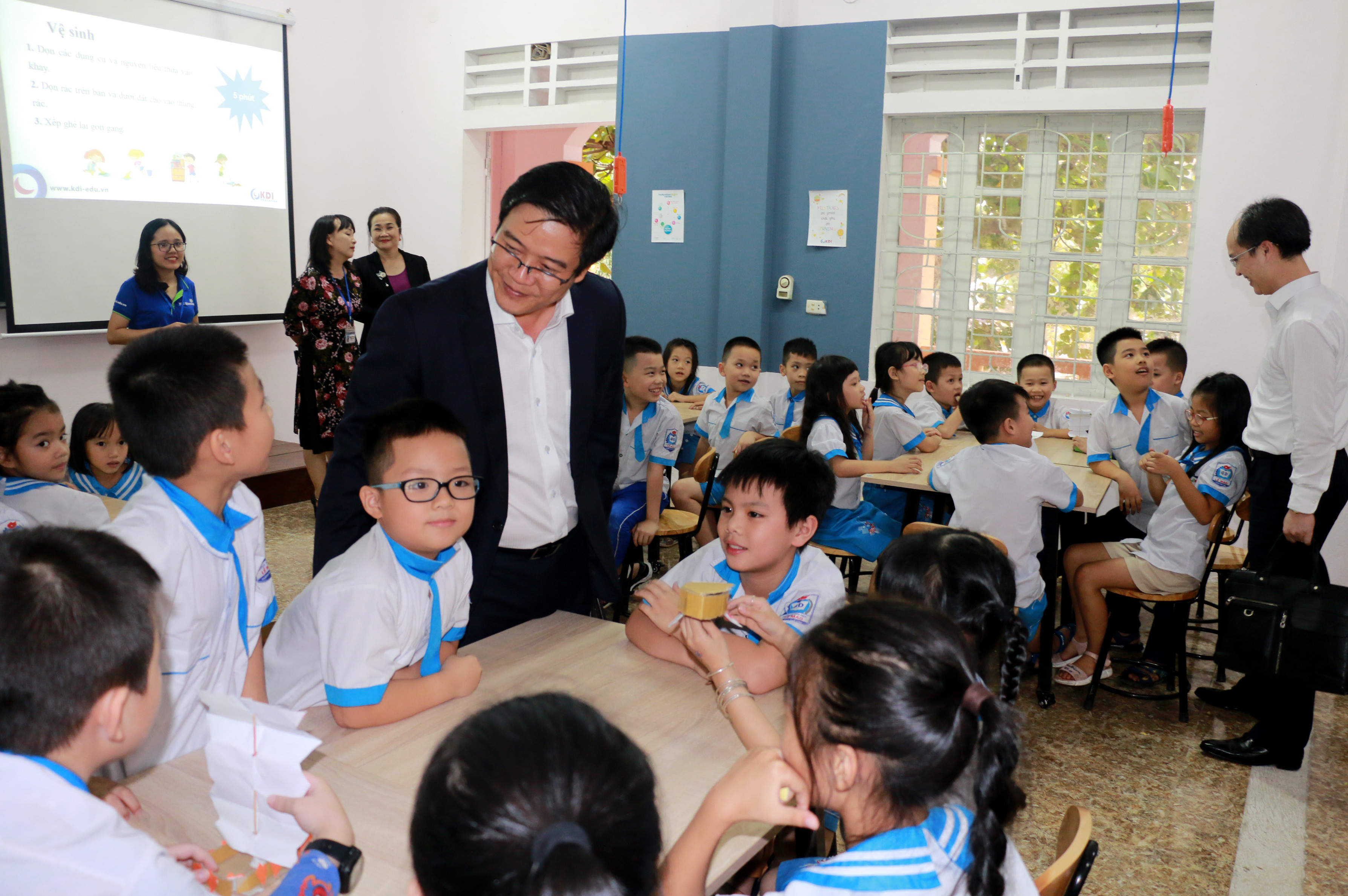Need to unify educational service fees in schools in Nghe An
(Baonghean.vn) - This is one of the contents discussed at the training conference on collection, management and use of funding sources, and management of public assets in educational institutions in Nghe An province held on November 5.
The conference took place over one day online and was attended by all principals, accountants and representatives of more than 1,000 schools in 21 districts and cities.
 |
| This is the first time an online conference on revenue and expenditure has been held on an industry-wide scale. Photo: My Ha |
At the conference, delegates discussed difficulties in the process of revenue and expenditure in schools, focusing on the groups of revenue according to regulations (health insurance, parking services, tuition), the group of revenue agreed upon (boarding fees, school fees on holidays, vocational training, school fees for 2 sessions/day, drinking water) and the group of voluntary revenue (including education sponsorship money, mobilization of union funds, team funds, sources from representatives of parents).
Currently, in most localities, most schools have implemented the collection of fees at the beginning of the year, but many opinions also said that the mobilization is facing many difficulties, especially the collection of fees for teaching 2 sessions/day. In fact, in the whole province, many localities have difficulty implementing this collection, so localities still have to teach based on the actual number of teachers in schools. Meanwhile, the shortage of teachers is happening and many places have not ensured enough hours according to educational requirements.
 |
| Director of the Department of Education and Training Thai Van Thanh speaks at the conference. Photo: My Ha |
The conference also focused on analyzing the current problems in revenue and expenditure, when some schools in the province still have the situation of overcharging and illegal collection. Recent inspections by the Department also showed that many schools have not done a good job of propagating policies and have not seriously implemented the public disclosure of revenues in accordance with Circular 36 of the Ministry of Education and Training.
Speaking at the conference, Director of the Department of Education and Training Thai Van Thanh also said: Currently, the management of revenue and expenditure and the use of public accounts in schools still has many shortcomings. Therefore, it requires school leaders and management teams to be impartial, honest and professional in financial management.
The Department leaders also shared the difficulties of teachers in the process of implementing the collection. Therefore, through this conference, the industry leaders want the delegates to share frankly and propose positive solutions to effectively manage financial revenue and expenditure and implement in accordance with current documents.
In addition, it is also necessary to discuss and propose revenue from educational services (such as life skills training fees, teaching enhanced English programs, Stem teaching, extra teaching and learning...) for the Department to use as a basis for making a report, approved by the Provincial People's Council. This is also the important content that the Law on Education (amended) has just been passed and officially takes effect from July 1, 2020.
 |
| Leaders of the Ministry of Education and Training learn about a Stem lesson at Le Mao Primary School, Vinh City. Photo: My Ha |
Accordingly, in the coming time, it is expected that some educational service fees will have specific regulations so that the implementation of fees is effective, in accordance with regulations, meeting the requirements of teaching and learning in the new period and gradually reducing pressure on schools.
In the past, schools in the province have collected educational services (such as life skills, extra classes, etc.) but still in the form of agreement and not synchronized between levels of education and schools. Therefore, unifying the educational service fees regulated by the Provincial People's Committee is necessary to help make the management of financial revenue and expenditure in the education sector clearer and more transparent.


